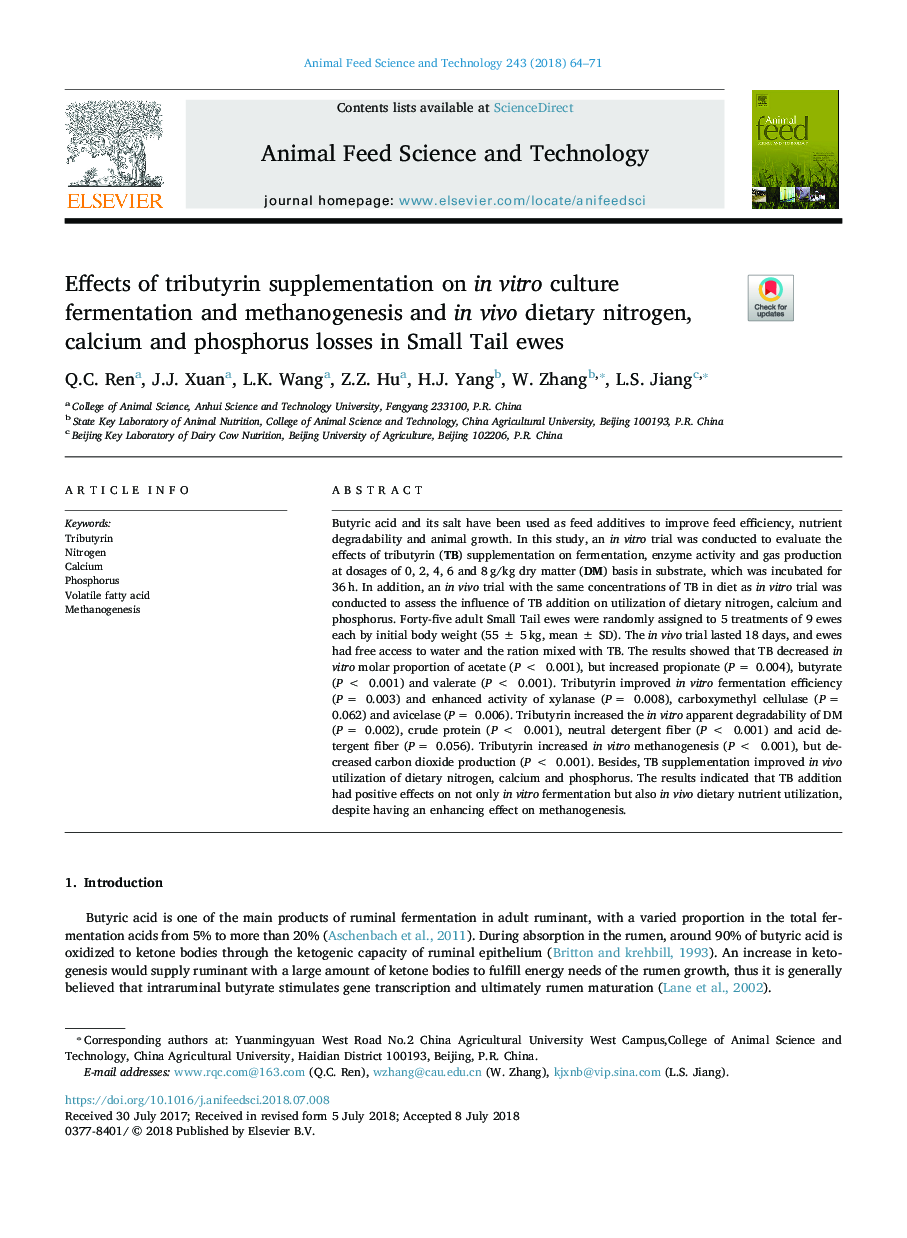| Article ID | Journal | Published Year | Pages | File Type |
|---|---|---|---|---|
| 8490899 | Animal Feed Science and Technology | 2018 | 8 Pages |
Abstract
Butyric acid and its salt have been used as feed additives to improve feed efficiency, nutrient degradability and animal growth. In this study, an in vitro trial was conducted to evaluate the effects of tributyrin (TB) supplementation on fermentation, enzyme activity and gas production at dosages of 0, 2, 4, 6 and 8â¯g/kg dry matter (DM) basis in substrate, which was incubated for 36â¯h. In addition, an in vivo trial with the same concentrations of TB in diet as in vitro trial was conducted to assess the influence of TB addition on utilization of dietary nitrogen, calcium and phosphorus. Forty-five adult Small Tail ewes were randomly assigned to 5 treatments of 9 ewes each by initial body weight (55â¯Â±â¯5â¯kg, meanâ¯Â±â¯SD). The in vivo trial lasted 18 days, and ewes had free access to water and the ration mixed with TB. The results showed that TB decreased in vitro molar proportion of acetate (Pâ¯<⯠0.001), but increased propionate (Pâ¯=⯠0.004), butyrate (Pâ¯<⯠0.001) and valerate (Pâ¯<⯠0.001). Tributyrin improved in vitro fermentation efficiency (Pâ¯=⯠0.003) and enhanced activity of xylanase (Pâ¯=⯠0.008), carboxymethyl cellulase (Pâ¯=⯠0.062) and avicelase (Pâ¯=⯠0.006). Tributyrin increased the in vitro apparent degradability of DM (Pâ¯=⯠0.002), crude protein (Pâ¯<⯠0.001), neutral detergent fiber (Pâ¯<⯠0.001) and acid detergent fiber (Pâ¯=⯠0.056). Tributyrin increased in vitro methanogenesis (Pâ¯<⯠0.001), but decreased carbon dioxide production (Pâ¯<⯠0.001). Besides, TB supplementation improved in vivo utilization of dietary nitrogen, calcium and phosphorus. The results indicated that TB addition had positive effects on not only in vitro fermentation but also in vivo dietary nutrient utilization, despite having an enhancing effect on methanogenesis.
Related Topics
Life Sciences
Agricultural and Biological Sciences
Animal Science and Zoology
Authors
Q.C. Ren, J.J. Xuan, L.K. Wang, Z.Z. Hu, H.J. Yang, W. Zhang, L.S. Jiang,
